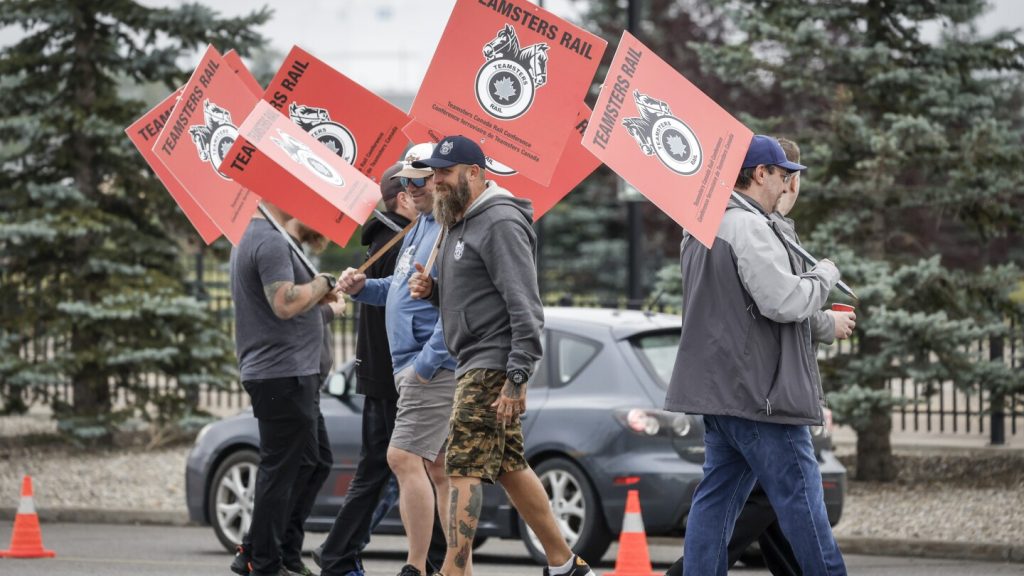Canadian rail unions have filed lawsuits challenging government orders that forced employees back to work and ended lockouts at both Canadian National and Canadian Pacific Kenworth Railway. The union’s president, Paul Boucher, emphasized the importance of the right to collectively bargain in ensuring better wages and safer working conditions for all Canadians. Despite the lawsuits, the government has ordered the union to stay on the job while the arbitration process plays out, meaning the trains will continue to operate as normal. The railroads have expressed disappointment in the lack of a negotiated settlement, with one spokesperson suggesting that the union was not looking for a resolution.
The lockouts at CN and CPKC caused significant disruptions in rail traffic in Canada and the US, impacting the delivery of raw materials and finished products from factories to retail shelves. Prime Minister Justin Trudeau’s government intervened in the contract dispute after both railroads locked out their workers, citing the economic importance of the rail industry as a reason for the government action. The union has challenged the government orders that sent the dispute into arbitration and forced them back to work, arguing that the officials did not have the power to block a strike. The union is seeking a declaration that the infringement on their right to strike is not a reasonable limit and is not justified in a free and democratic society.
The nearly 10,000 engineers, conductors, and dispatchers represented by the union could not agree on a new contract despite nearly a year of negotiations. The talks deadlocked over the railroads’ proposal to switch to an hourly-based pay and scheduling system instead of the current mileage-based system, with the union raising concerns about fatigue and safety. Both CN and CPKC have offered pay raises in line with other recent rail industry deals, with CN engineers making about CA$150,000 a year and conductors earning CA$121,000. There was also a dispute at CN over the expansion of a system that temporarily relocates workers to address staff shortages, with the union concerned about disrupting families.
The rail contract dispute in Canada has raised concerns about potential disruptions to rail shipments, with chemical companies, water treatment plants, ports, and other railroads expressing worries about production slowdowns and shortages if CN and CPKC remain idle. The two railroads handle more than CA$ 1 billion worth of shipments a day and carry billions of dollars in goods between the US and Canada monthly. Despite both railroads resuming operations after the lockouts, it may take several weeks for them to recover and get back up to speed. In the US, railroads have been able to avoid strikes with new contract agreements providing raises and improved benefits for workers.
The union’s legal challenge to the government orders highlights the ongoing labor dispute in the Canadian rail industry and the importance of the right to collectively bargain for better working conditions and fair wages. The outcome of the lawsuits and arbitration process will ultimately determine the future of labor relations between the unions and the railroads, as well as the impact on the transportation of goods between Canada and the US. As the railroads work to recover from the disruptions caused by the lockouts, both sides will need to find a resolution that addresses the concerns of the workers while ensuring the continued operation of the rail industry for the benefit of the economy and the community.


